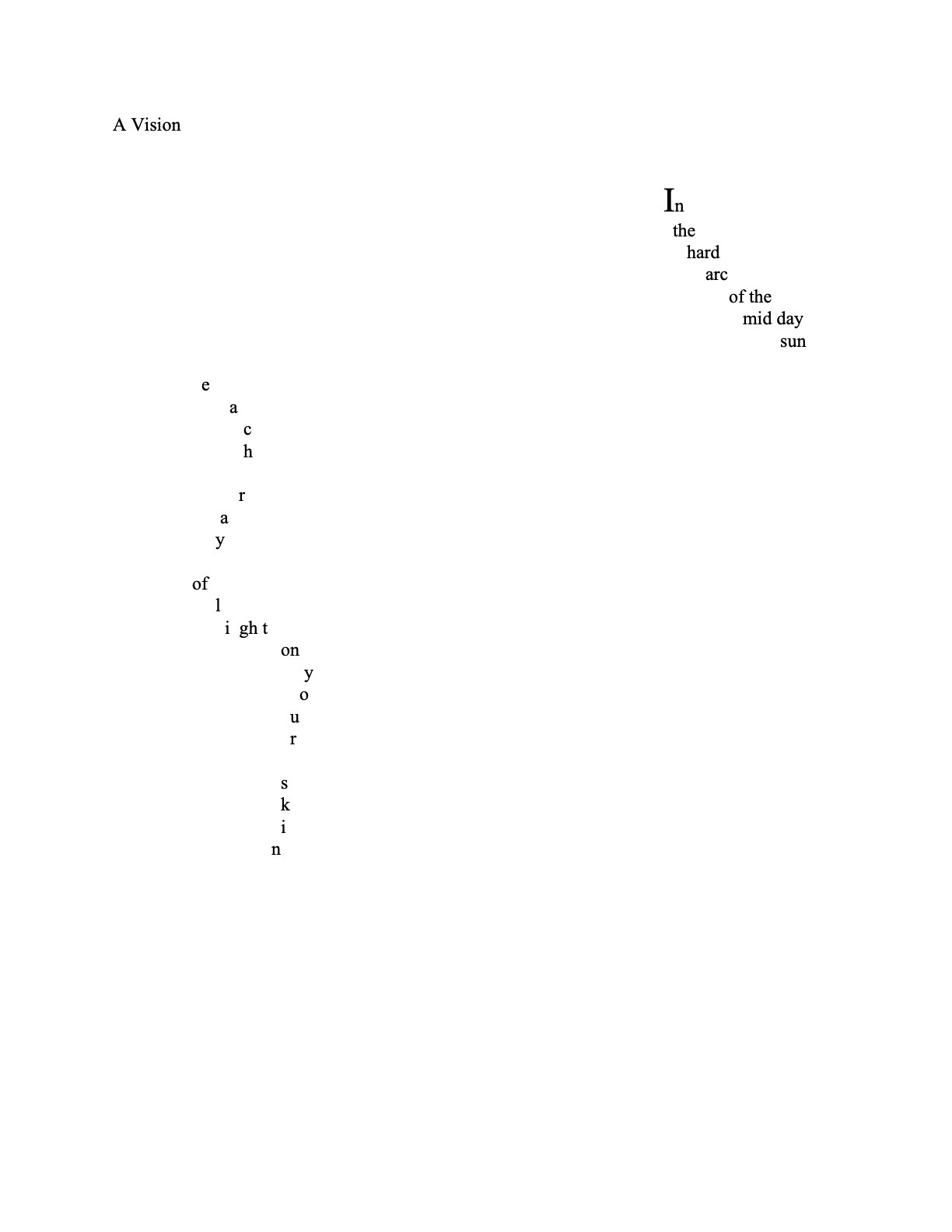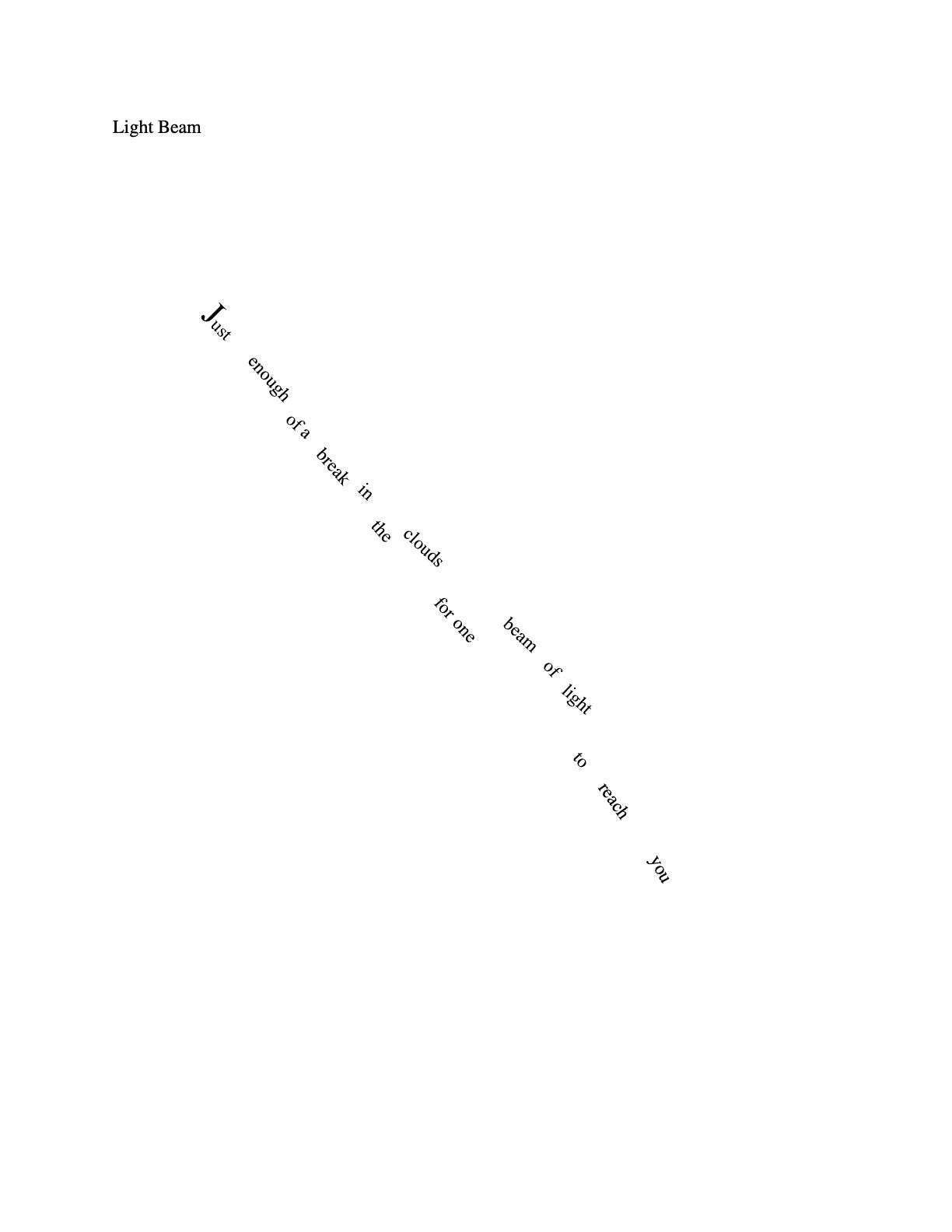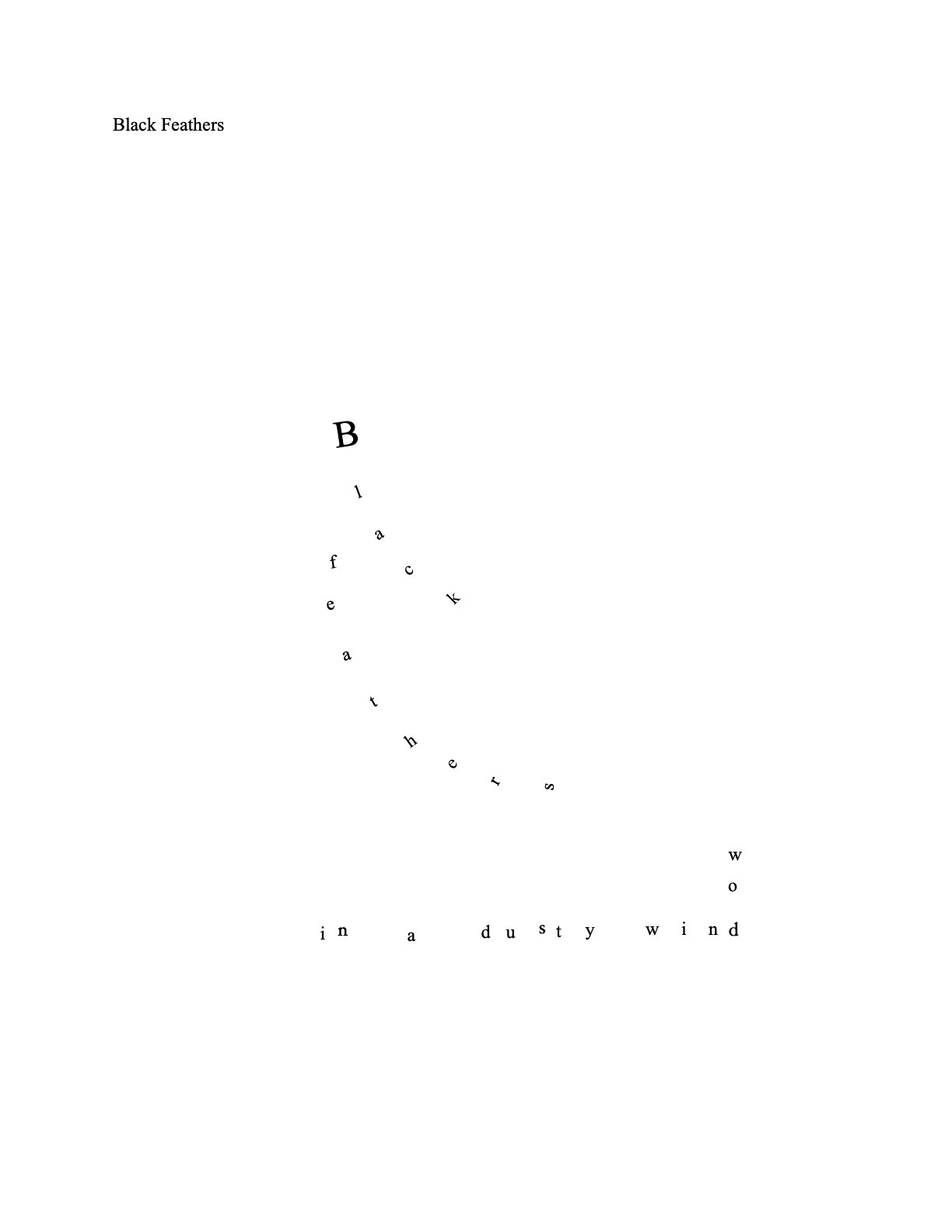Dan Dorman and Letting Go Light
Never a Contest Issue #2
Point someone to visual poetry like Dan Dorman’s if they too repeat the (ironically decontextualized) phrase “poetry makes nothing happen.” If they're not ready to notice their eyes enact the shapes of the words and letters arranged on the page, then they might not be ready for how well poetry can let something real happen off of it.
But if they are ready, Dan’s “A Vision” will have their eyes see in ways that are both familiar, like examining fruit for bruises, and extraordinary, like following the hovering arm of a piano player as it ghostily lifts away from the keys.
Dan tells me in all his visual work he combines “accessible poetic language, natural images, and, when appropriate, implied motion in those image forms.” One of those image forms in “A Vision” seems relatively clear: the arc of the sun itself. But the other string of words could be a body, yes, or a mountainside, even a waterfall. And though the words in the shape on the left of “A Vision” mention light on skin, there arises the question of whether, as you see this poem, the light is actually hitting you right now, as you read. The poem has made you notice your body. Are you getting enough light?
Up in the Northeast Ohio area, where I live and also first met Dan after I moved there to be in his same MFA program, the sky is often very gray. So I’ve become keenly aware that when sunlight is continually missing you might not quickly notice the lack. Which likely means you might not get out of your chair where you were reading a poem and go read the light instead. Dan’s poem “Light Beam” lets you practice doing that. It lets you see the inevitable way light behaves:
Dan tells me this poem was inspired by the well-known double-slit experiment. This is related to quantum mechanics and particle-wave duality—fascinating stuff too complex to get into here. But as Dan notes, the phenomenon represented in his poem occurs naturally, too, since light beams may be interfered with—by a body, a mountain, a waterfall—while still passing through or around these objects and in essence reuniting with itself. Light is light is lighght. It might become distorted somehow, as in “Light Beam” where the clouds split it, but that fact shows that light doesn't die, only transforms into something else until it eventually returns to luminous shapes. No, Dan’s poem didn't make me know all this, but it did give me the proper conditions to learn/realize/research enough to know. It made me think about how much nothingness is still in me, waiting to have light shone on it. Maybe making good poetry is creating specific conditions for the senses to explore.
Then again, judging aesthetic worth—too often determined mostly by what a poem makes happen (as if they all should try to be 3-D printers of the soul)—is always a tricky subject.
In discussing this letter, Dan reminded me of the pleasingly unsettling notion that all publication is a sort of contest, saying ”the editor choosing who to publish or not is basically a contest.” He adds he prefers editors who curate rather than judge, which I agree with and try to do through this letter as a way to curb hierarchical positionings of writers; but of course I can't deny that I partially chose his work near the outset of this project as a part of a curatorial “contest,” one where he had an upper hand due to my admiration of his poems. But I also think that line of thought takes us to a place where we've strained the meaning of a word and frozen us out of further inquiry.
Dan says it took him a while as a writer to see that some word like “leaves” just means leaves on the page. This is difficult for us all, I think, but when you consider more abstract words like contest, it's even harder to see them as holding stable meaning. Maybe this is key to the problem of the contest: the word means different things to different people, and some of them are privileged—or have been foolish?—enough to learn well what the grey areas in the actual rules are.
What's good about Dan’s poems is that they turn rules into lures. (Light illuminates the quiet pond of the mind). The deceptive minimalism of his poems helps you pull in the big fish. But since no one will be able to take a picture of your inwardly deep discovery to post on Twitter, it's probably best you let it go, give someone else a chance to catch it. That's what Dan’s poems do. They let you let go.
In the spirit of letting go, enjoy one more poem of Dan’s here, this time without curatorial commentary:
Places these poems first appeared:
“A Vision” in jubilat 33.
“Light Beam” in Nod Magazine 26.
“Black Feathers” at Ink, Sweat and Tears.
Contemporary poets that have influenced Dan: Doug Kearney and Susan Howe.
Dan Dorman holds an MFA from the Northeast Ohio MFA Program. His work can be found in jubilat, Word for/Word, and Nōd Magazine, among others. Dan teaches writing and jockeys library books. Connect with him on Instagram @dan_dorman_us and dandorman.com



